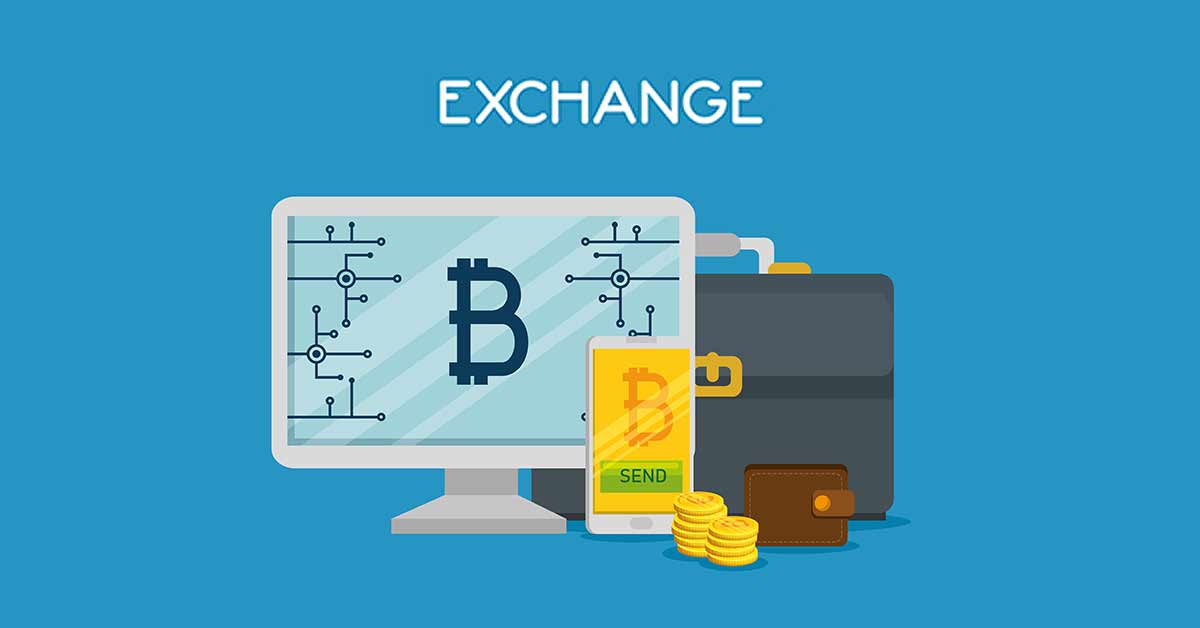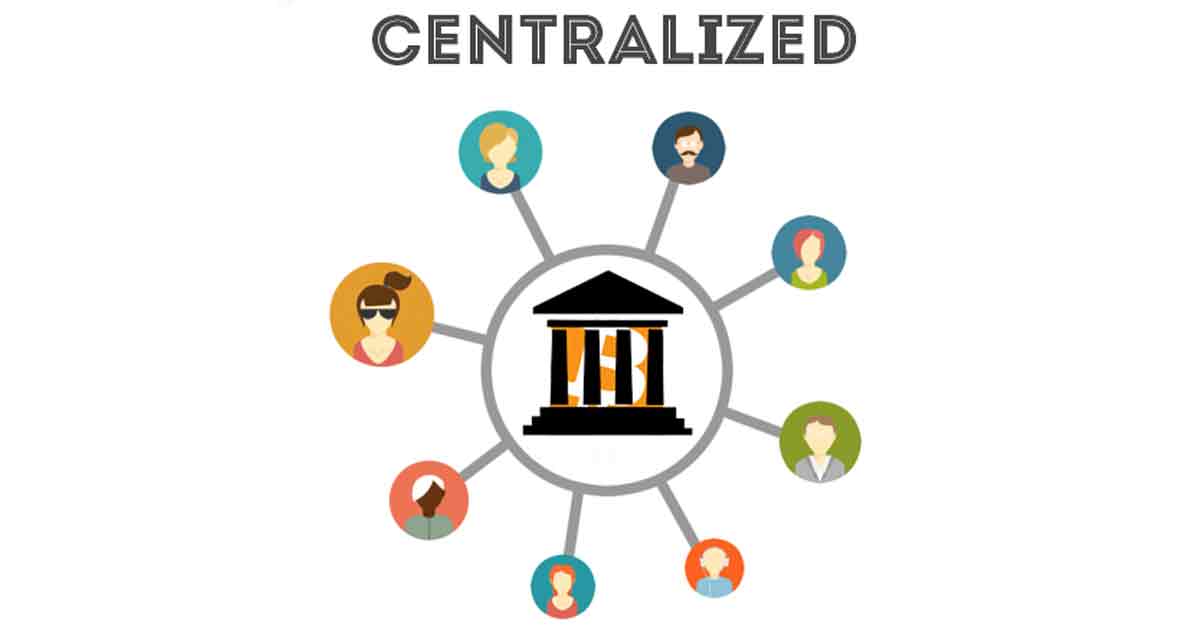A crypto exchange is your entry point to the amazing world of cryptocurrencies. Learn the difference between CEX and DEX.

But what is an Exchange?
Bitcoin. Ethereum. Dogecoin. NFTs. These and all other types of assets in the digital world have one thing in common: Exchanges.
They are the ones that enabled the global success and adoption of crypto, because they are usually simple to operate where any beginner can buy and sell their assets.
So, let’s quickly explain what a crypto exchange is. Simply put, these are digital marketplaces where you can buy, sell, and in some cases store cryptocurrencies and crypto assets. Some of these digital assets are coins like Bitcoin, Dogecoin and Solana and also NFTs.
You can buy crypto for crypto – example: sell Bitcoin for Litecoin -, as you can buy crypto with fiat currency – example: buy Bitcoin with US dollars.

If the cryptocurrency market has proliferated, so have the exchanges.
Some are already a decade old, like Coinbase, but many have appeared only in the last year.
When choosing an exchange keep in mind some key points, such as:
- security
- accessibility
- fees
- number of assets offered
- educational tools
- liquidity
- possibility (or not) of storing cryptos
The big division is that they can be CEX and DEX. Read on to understand the two differences, their advantages and disadvantages.
CEX and DEX: The Differences Between Exchanges
In one sentence: CEX is a centralized exchange and DEX is a decentralized exchange.
But don’t go away just yet, as it is a bit more complex than it sounds. There is no one that is better than the other. They are fundamentally different and you should choose the one that fits you best.
Between CEX and DEX only one letter changes, but the differences are important.
CEX: The Centralized Exchange
Centralized Exchanges are the platforms that act as a meeting place for people to exchange their currencies.
A CEX is set up by a centralized company/organization that acts as an intermediary to store assets, regulate exchanges, and charge exchange fees.
At CEX, the exchange process takes place through an order book. It sets the price for a specific currency based on the existing buy and sell orders at that time.

This type of exchange is currently the most popular in the world and is typically used by newcomers to the crypto market, as CEX is a user-friendly platform that makes buying and managing digital currencies extremely simple.
Binance, Bitmax, Bitfinex, GATE.io, Kraken, and OKEx are examples of CEX platforms.
Advantages of the CEX Centralized Exchange:
- High volume and liquidity:
Since CEXs are usually better known and used by many active users buying/selling their assets, it results in a high trading volume compared to DEXs. One consequence of high trading volume is high liquidity.
Liquidity means the ability of an asset to be converted into cash or other digital currencies. Liquidity is important because it makes that exchange less vulnerable to market manipulation.
- Ability to exchange fiat currency for crypto and vice versa:
Centralized platforms allow the exchange of fiat currency for cryptos and vice versa.
This allows great ease and comfort for those starting this activity who cannot get it on a DEX.
- Increased functionalities:
You will usually find more services on a DEX. Besides being a platform for buying and selling, it is usual to see other features such as margin trading, derivatives trading, betting with digital assets and margin lending.
- Fast transactions:
CEXs can process each transaction quickly and almost in real time, helping traders react directly without being affected by sudden changes in the market.
This is because CEXs are managed by a centralized organization company that can process thousands of orders per second.
Disadvantages of the CEX Centralized Exchange:
- Potential to suffer attacks from Hackers:
Compared to the DEX mechanism, in CEX it is based on trust, as the CEX platform stores its assets in has integrated wallets that are part of its system (custodial services).
This mechanism is beyond the user’s control. Therefore, users have to put full trust in CEX platforms that their money is safe with them.
It is because of this situation that such platforms are prime targets for cybercriminals.
- Under government regulation:
Centralized exchanges are under the control of regulators, providers and legal regulations. Thus, to prevent money laundering, operators are required to collect data about their customers (the usual KYC).
And this centralized control turns out to be contrary to the basic idea of cryptocurrencies.
DEX: The Decentralized exchange
DEXs are an evolution of CEXs. The system is not controlled by a centralized entity.
DEXs are autonomous financial protocols driven by smart contracts that allow traders to convert one digital asset for another, with all transactions visible on the blockchain.
Each DEX transaction is governed by an automated procedure that is driven by a smart contract. When compared to CEX, the existence of these smart contracts makes transactions more instantaneous and low cost.

Among others, PancakeSwap, Uniswap, Sushiswap, 1inch Exchange and Zapper.fi are examples of decentralized platforms.
Advantages of Decentralized Exchange DEX:
- Increased security from external attacks:
This is explained by two reasons. A DEX will use a non-custodial framework, where users have full control over their assets, so hackers cannot get into users’ wallets unless users expose themselves.
Hackers mainly target the central exchange database to extract users’ private keys and withdraw their funds. Second, since no identity verification process is required, there will be no risk of leaking users’ private data.
- No fraud by third parties:
There is no fraud on the third-party entities. Since there are no centralized organizations, financial regulators or authorities that monitor, there can be no fraud that could come from there.
- DeFi and NFT integration:
DEXs use smart contracts. They allow users to access the world of smart contracts and DApps that provide various financial services, including loan and savings products, as well as NFT projects.
- Low-cost rates:
You may find better trading fees by DEXs having a large number of trading pairs. Of course, you should always look carefully at the fees, as this will not always be true.
Disadvantages of the DEX Decentralized Exchange:
- Lower liquidity:
When compared to CEX platforms, you will have less liquidity. Since the number of active participants is smaller, the same will also apply to liquidity. This is still the case, but as time goes on and the DeFi (decentralized finance) reality grows, this liquidity should increase.
- Limited Functionalities:
Whether we are talking about extra features or even user interface, DEXs are almost always more limited or more complicated. There are no options like buying with limit or stop loss orders.
The interfaces are usually not user-friendly or intuitive, especially if you are a beginner.
CEX and DEX: Conclusion
CEX and DEX have their advantages and disadvantages. As you have already understood, between CEX and DEX there is not one option that is the best. Rather, there is the option that suits you best.
Choosing the right exchange for you is important and will probably be the first step you take in this world, so pay attention to the advantages and disadvantages just described.
If you are prepared to invest money in this market you should already know that the market is very volatile and unstable. But your exchange should be nothing of the sort. CEX and DEX, choose wisely.
